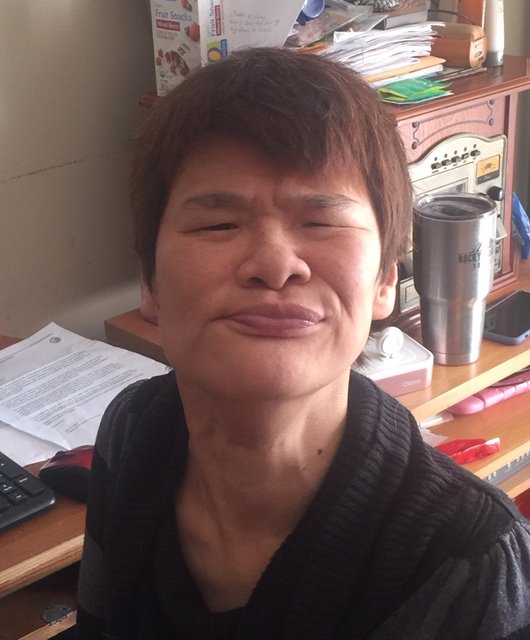
By Kim Vuong, PRC-Saltillo Blogger
The day before Mother’s Day, my boyfriend Brian and I got a phone call from Brian’s dad, saying that Brian’s Brother Dave had suffered a stroke and was headed to the hospital. They had found Dave unconscious in his home. It turned out that he’d had several strokes before that day, but they had gone undetected.
At the hospital, surgeons removed the blood clot that had led to the bleeding and discovered the cause of the stroke—a small piece of a heart and now the doctor found out the cause of the stroke. A fragment from a degenerated heart valve had broken free and traveled to his brain.
The stroke left Dave unable to communicate. I felt empathy for him because I’d been in a similar situation once. After neck surgery, I’d developed a blood clot that sent me to the ICU, where doctors put me on a ventilator and gave me a breathing tube. I couldn’t communicate with anyone. The feeling of helplessness and isolation is really awful. You might not even know why you’re in the hospital, which can be really scary.
For that reason, I figured it would be a good idea to help Dave. When I went to visit him last week, I brought him a spelling board—basically, a piece of paper with the alphabet printed on it for communication. He isn’t yet able to use it, but I’m hopeful that eventually, he will. A stroke patient can point to letters, or if that’s not possible, have someone else point to them and respond to his nods
Communication is the most important thing to getting your needs and wants. Having a low-tech way for patients to be able to express themselves is important. Dave is very good at using his eyes, so maybe the speech-language pathologist can help him communicate that way.
Sample Emergency Communication Board
Communicators In Action - hospital, manual board, stroke, language, emergency, alphabet